 10 citations,
November 2014 in “Journal of Dermatological Treatment”
10 citations,
November 2014 in “Journal of Dermatological Treatment” Polyphenols may help treat skin conditions like warts, hair loss, acne, and dark spots, but more research is needed.
 7 citations,
August 2018 in “Journal of Cosmetic and Laser Therapy”
7 citations,
August 2018 in “Journal of Cosmetic and Laser Therapy” Microneedling combined with skinbooster effectively treats striae rubrae, with confocal microscopy confirming collagen changes.
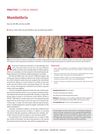 1 citations,
July 2018 in “CMAJ. Canadian Medical Association journal”
1 citations,
July 2018 in “CMAJ. Canadian Medical Association journal” A three-year-old girl has hair loss despite treatment with selenium sulfide shampoo and anti-fungal medication.
 1 citations,
June 2012 in “Actas Dermo-Sifiliográficas”
1 citations,
June 2012 in “Actas Dermo-Sifiliográficas” Early and aggressive treatment of scarring alopecia is important to prevent further hair follicle damage.
 November 2021 in “Egyptian Journal of Medical Microbiology”
November 2021 in “Egyptian Journal of Medical Microbiology” COVID-19 protective measures led to skin irritation, hair loss, and brittle nails; using skin-friendly products and a healthy diet is recommended.
 247 citations,
August 2011 in “European Journal of Epidemiology”
247 citations,
August 2011 in “European Journal of Epidemiology” The Rotterdam Study updated its design and objectives in 2012, providing insights into various diseases in the elderly, including skin cancer, bone health, liver disease, neurological and psychiatric conditions, and respiratory issues.
 29 citations,
November 2011 in “Human Fertility”
29 citations,
November 2011 in “Human Fertility” Many women with PCOS have undiagnosed health issues and show different symptoms based on the clinic they visit.
 14 citations,
January 2020 in “Mediterranean Journal of Rheumatology”
14 citations,
January 2020 in “Mediterranean Journal of Rheumatology” New JAK inhibitor drugs show promise for treating skin diseases but need more research on safety and effectiveness.
 7 citations,
February 2006 in “Psychological Reports”
7 citations,
February 2006 in “Psychological Reports” Hair loss discovery causes stress; talking to dermatologists helps.
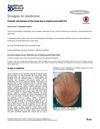 3 citations,
January 2018
3 citations,
January 2018 A woman had an unusual allergic reaction to a hair loss treatment, which cleared up after stopping the treatment and using a different medication.

Vitamin D is crucial for skin health and managing skin diseases.
 June 2018 in “International journal of trend in scientific research and development”
June 2018 in “International journal of trend in scientific research and development” The review explains how hair products work and the science of different hair types to help improve hair care research.
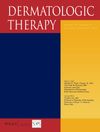 November 2016 in “Dermatologic Therapy”
November 2016 in “Dermatologic Therapy” "Dermatologic Therapy" offers expert treatment info for various skin diseases.
 68 citations,
May 2012 in “Annals of Oncology”
68 citations,
May 2012 in “Annals of Oncology” Some breast cancer chemotherapy can cause permanent hair loss.
 41 citations,
March 2010 in “Psychology Research and Behavior Management”
41 citations,
March 2010 in “Psychology Research and Behavior Management” Using psychological treatments can help manage skin conditions along with regular medical care.
 36 citations,
August 2018 in “Dermatologic Clinics”
36 citations,
August 2018 in “Dermatologic Clinics” Trichoscopy is a useful tool for diagnosing hair disorders without pulling out hair.
 14 citations,
November 2020 in “International Journal of Molecular Sciences”
14 citations,
November 2020 in “International Journal of Molecular Sciences” Advanced therapies like gene, cell, and tissue engineering show promise for hair regrowth in alopecia, but their safety and effectiveness need more verification.
 June 2015 in “Biomedical and biopharmaceutical research”
June 2015 in “Biomedical and biopharmaceutical research” The congress showed advancements in skin hydration, barrier function, and safe, effective new cosmetic formulations.
 January 1998 in “Lasers in Surgery and Medicine”
January 1998 in “Lasers in Surgery and Medicine” Lasers are effective and safe for various medical treatments, including cancer, wound healing, and skin conditions.
 35 citations,
January 2006 in “Journal of Dermatological Treatment”
35 citations,
January 2006 in “Journal of Dermatological Treatment” Zinc can help with some skin problems, but its effectiveness varies depending on the condition.
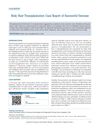 6 citations,
January 2013 in “Journal of Cutaneous and Aesthetic Surgery”
6 citations,
January 2013 in “Journal of Cutaneous and Aesthetic Surgery” A man with baldness had successful hair growth after transplanting body hair to his head.
 4 citations,
January 2011 in “International Journal of Trichology”
4 citations,
January 2011 in “International Journal of Trichology” Accidental findings have led to new hair treatment discoveries, like using blood pressure and diabetes medications for hair loss and unwanted hair.
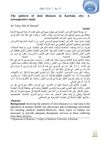 3 citations,
August 2017 in “Al-Qadisiah medical journal”
3 citations,
August 2017 in “Al-Qadisiah medical journal” Focus on common skin diseases like eczema and infections to improve diagnosis and management.
 March 2021 in “Clin-Alert”
March 2021 in “Clin-Alert” The FDA warned about safety issues with remdesivir and tofacitinib, finasteride is linked to suicidality, potent topical corticosteroids increase osteoporosis risk, henna can cause hemolysis in G6PD deficiency, chemotherapeutic agents can cause adverse reactions, drug interactions are common in cancer patients, ketamine can reduce at-risk drinking, high dose of anticholinergics increases dementia risk in Parkinson's patients, and prenatal exposure to second-generation antipsychotics increases pregnancy complications.
 May 2012 in “Scientific American”
May 2012 in “Scientific American” New app improves storm surge predictions; advances in baldness treatment show potential but require time.
 January 2017 in “DOAJ (DOAJ: Directory of Open Access Journals)”
January 2017 in “DOAJ (DOAJ: Directory of Open Access Journals)” Hair loss from alopecia areata and androgenetic alopecia moderately affects the quality of life, especially in younger patients and those with long-term hair loss, impacting both their physical and emotional well-being.
 December 2023 in “Journal of Drugs in Dermatology”
December 2023 in “Journal of Drugs in Dermatology” Media coverage increased public interest in oral minoxidil for hair loss but may also spread misinformation.
 February 2023 in “Journal of Drugs in Dermatology”
February 2023 in “Journal of Drugs in Dermatology” People who use minoxidil for hair loss often stop within 3.5 months due to lack of improvement, so educating them early on may help them stick with it.
5 citations,
August 1976 in “Biochemical Society transactions” Steroids can treat skin conditions but must be used carefully to avoid side effects.
 4 citations,
January 2002 in “Annals of Dermatology”
4 citations,
January 2002 in “Annals of Dermatology” Androgenetic alopecia, or hair loss, is most common in people in their 30s, can start early, is often inherited, and may be influenced by factors like hormones and scalp health.





























